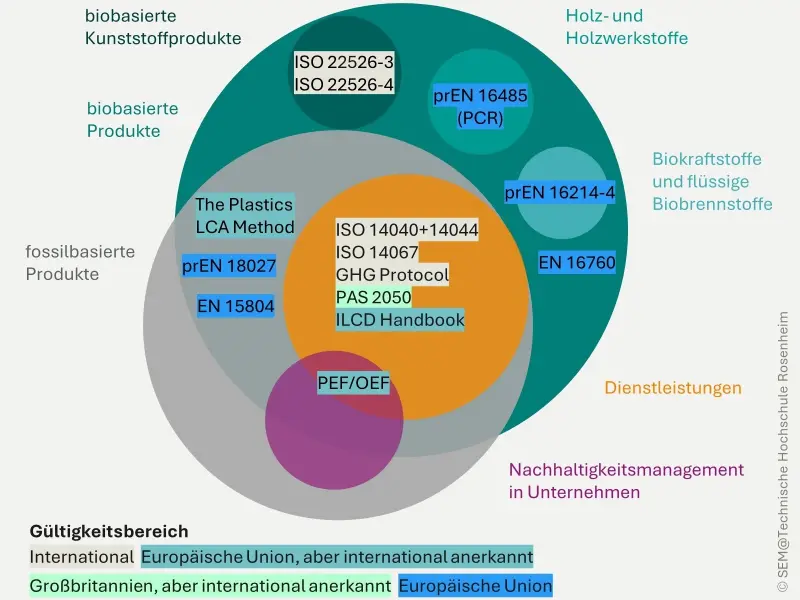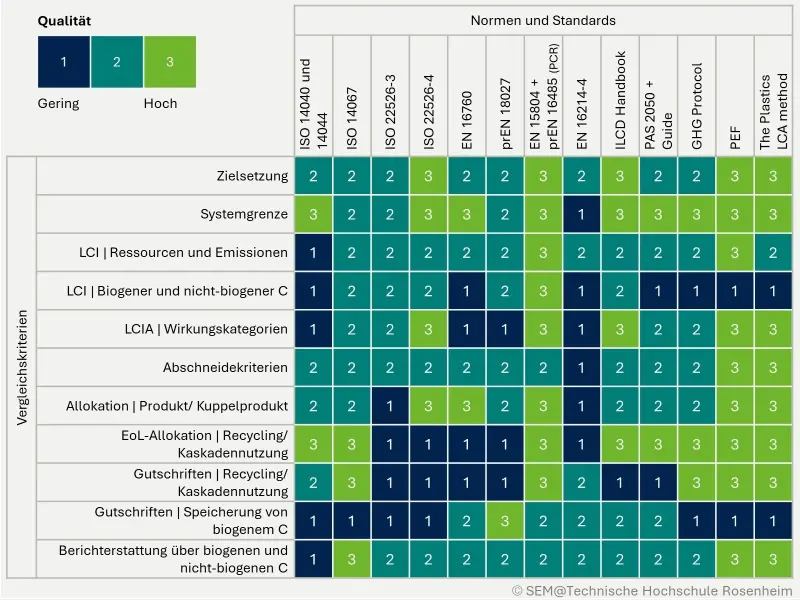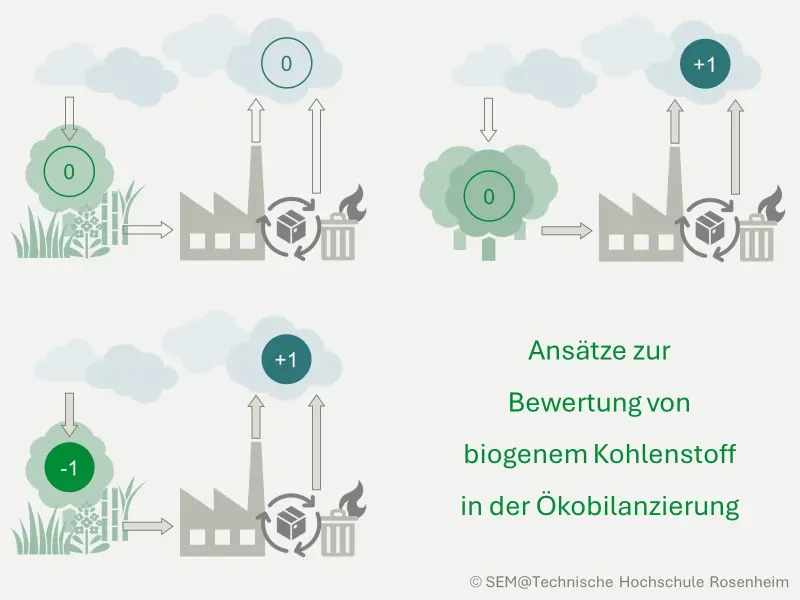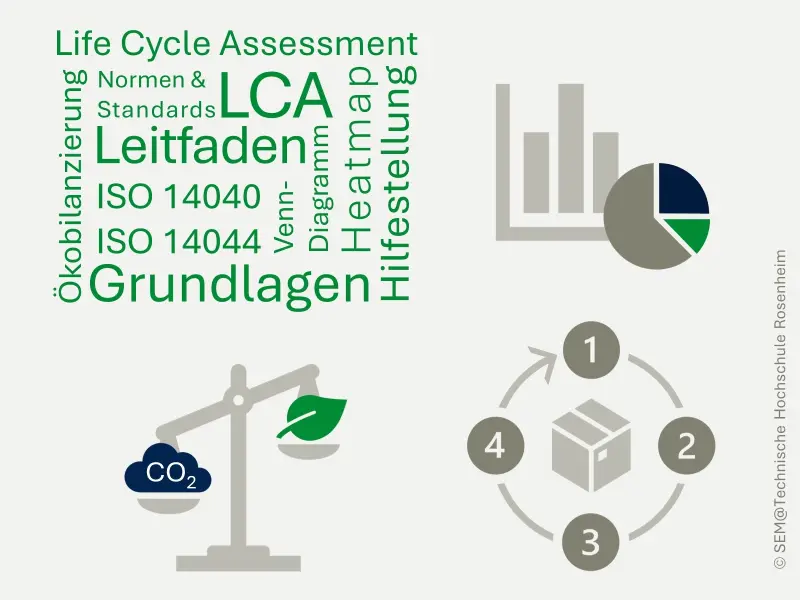Life cycle assessment Bioeconomy
Is there a standardised methodological approach to ecological assessment?
The evaluation of strategies and measures taken in the context of the bioeconomy is essential to support the transformation to a bio-based economy. This is the only way to ensure that the measures taken actually reduce the burden on the environment. Life cycle assessment (LCA) plays an important role in the bioeconomy as it enables a comprehensive assessment of the impact of products and processes on the environment. All significant environmental impacts along the entire life cycle of a product are recorded, from the extraction of raw materials through production and utilisation to disposal. Furthermore, the substitution of fossil raw materials as well as the cascade utilisation and recycling of bio-based raw materials and products can be ecologically assessed.
A standardised approach is crucial for a meaningful and comparable ecological assessment. However, there is currently no consensus either in practice or in research - especially when it comes to the assessment of bio-based products. The reason for this is the large number of available norms and standards that have been developed over the past 20 years. By addressing different products or sectors, the requirements for the life cycle assessment vary, which severely limits the comparability of the results. In addition, the assessment of bio-based products in particular poses further challenges in life cycle assessment.
This raises the question of which standard should be applied and when. This is not easy to answer, as different objectives are focussed on depending on the application and therefore different solutions exist.
TransBIB provides assistance for initial orientation:
The Venn diagram shows a selection of norms and standards relevant to LCA, categorises them according to their scope of application and validity and thus provides an initial overview.
The Heatmap offers the visually prepared result of a comparative analysis of 11 criteria and thus shows the strengths and weaknesses of the LCA-relevant norms and standards.
The article on the challenges in LCA when assessing bio-based products provides an initial insight into the complexity of assessing biogenic carbon.
The LCA Guide 1.0 outlines the basics of LCA according to ISO 14040 + 14044 and offers a step-by-step guide for a standardised, methodical approach as well as a checklist of relevant components of LCA. The Venn diagram and the heat map are taken up and extended by a decision tree that supports the selection of suitable standards and norms. It also includes a brief introduction to reporting in accordance with the CSRD and GHG Protocol.
(The norms and standards analysed and the 11 criteria are a selection relevant to the bioeconomy, without any claim to completeness).
Venn diagram | Overview of LCA-relevant norms and standards in the bioeconomy
Various norms and standards are available for life cycle assessment in the bioeconomy. TransBIB presents a selection of relevant norms and standards in the form of a Venn diagram and organises them according to their area of application and validity.
Information on the Venn diagram
Heatmap | Comparison of LCA-relevant norms and standards in the bioeconomy
Various norms and standards support the life cycle assessment of products in the bioeconomy. The choice of guideline is usually not easy. TransBIB offers a heat map for initial orientation.
Information on the heatmap
Challenges in life cycle assessment in the evaluation of bio-based products
Different approaches are defined in the norms and standards, particularly for the assessment of biogenic carbon (C).
The challenges of life cycle assessment
LCA Guide 1.0
The guide provides step-by-step instructions for a standardised, methodical approach to life cycle assessment in accordance with ISO 14040 + 14044 as well as a checklist of relevant components of the life cycle assessment and contains further information on relevant norms and standards.
LCA Guide 1.0 | Basics (PDF)
Footnotes
Content created by the Sustainable Engineering & Management (SEM) research group at Rosenheim University of Applied Sciences (TH Rosenheim)